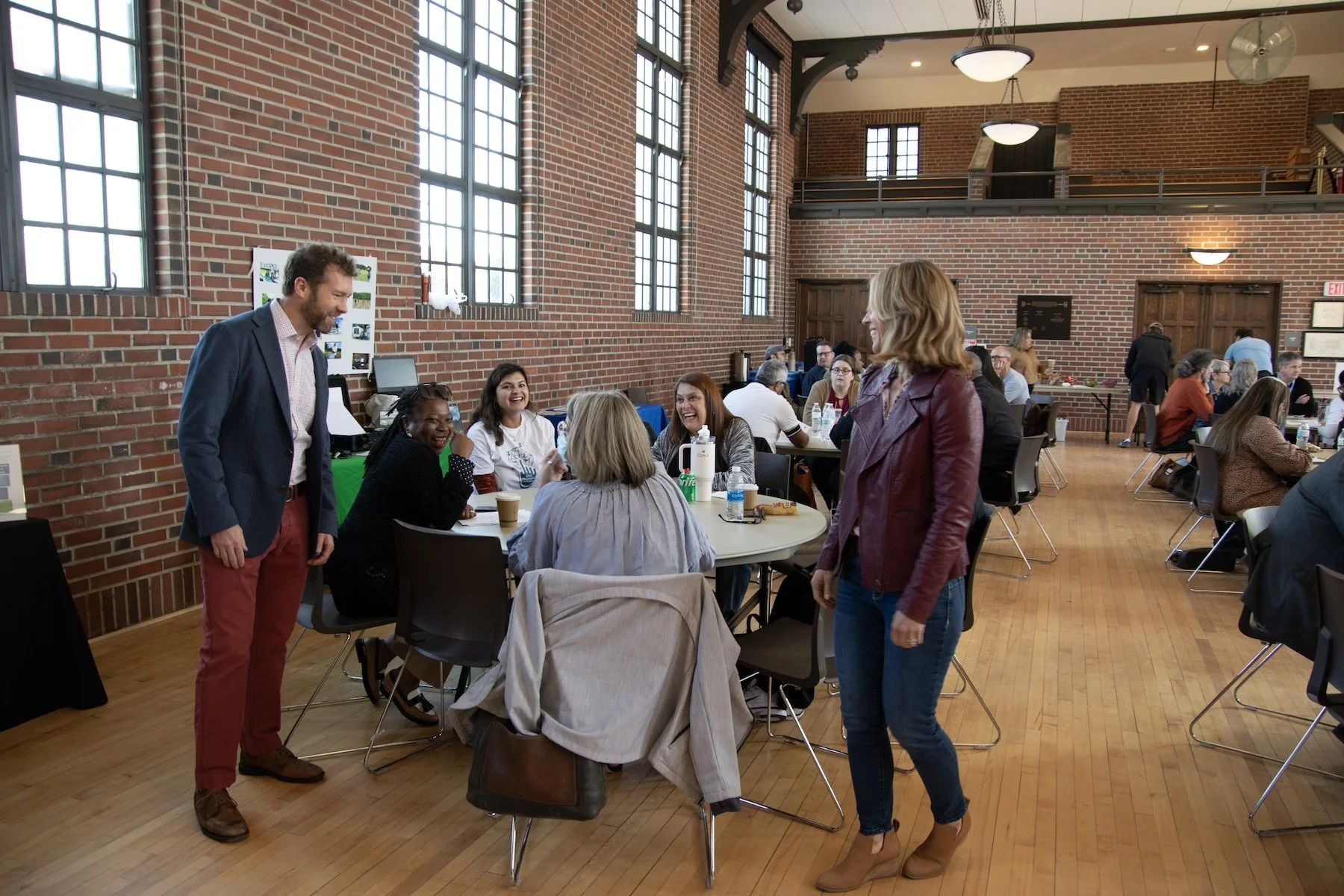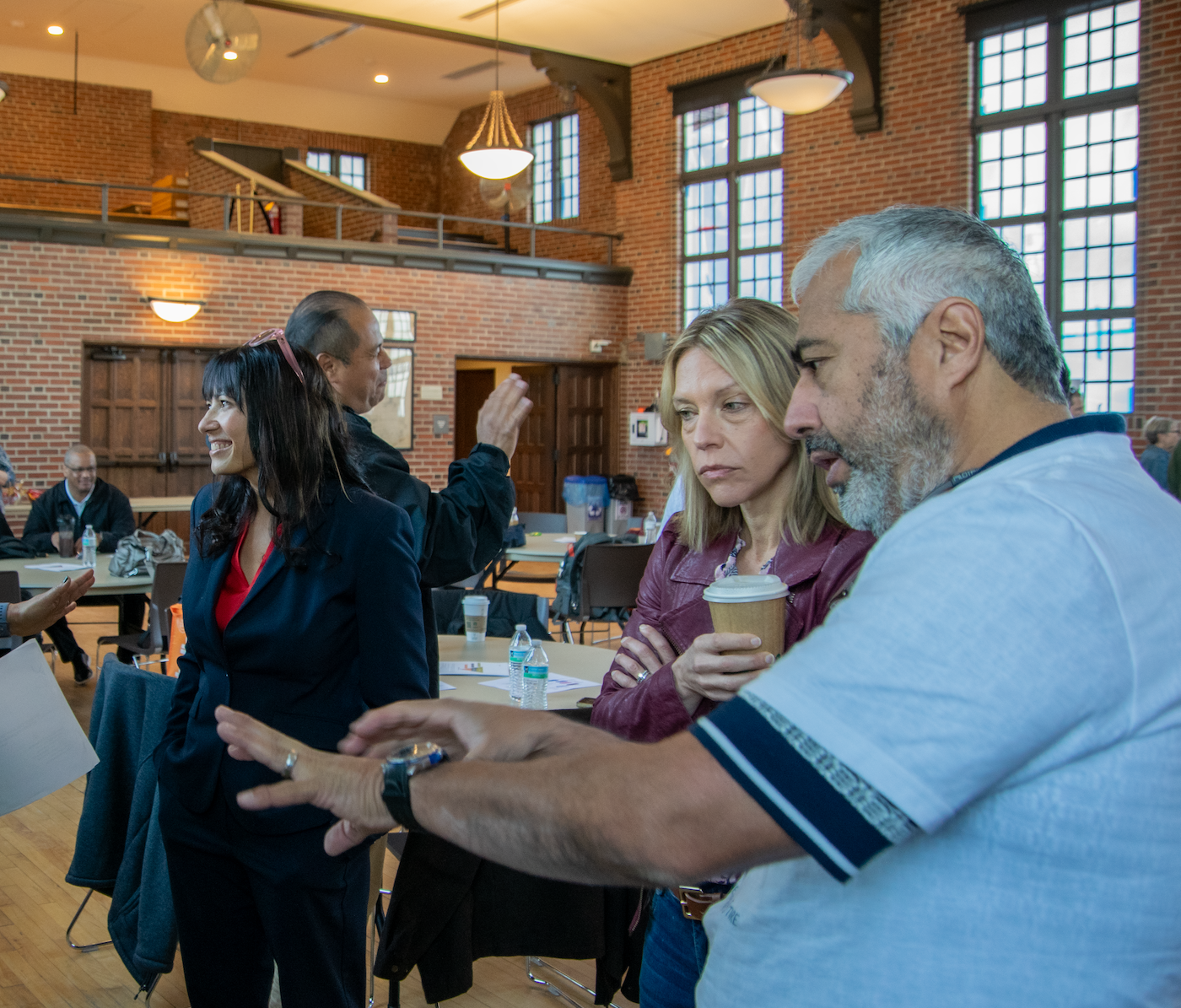Nine Collaboratives, Ten Months, One Shared Vision
A powerful sense of energy and momentum filled the air last week in Asheville, as collaborative teams from across Western North Carolina gathered to mark an exciting turning point from planning to implementation within the Digital Opportunities Learning Cohort, part of Dogwood Health Trust’s Digital Opportunities Initiative.
For nearly a year, 53 organizations from nonprofit and governmental organizations across the 18-county region, have been learning, experimenting and leading together. They’ve explored how to work more collaboratively, strengthened their own understanding of the digital opportunities ecosystem and cultivated leadership that brings people together across boundaries. Liminal Collaboration has been honored to walk alongside this journey as a facilitative partner, creating a container for connection and growth, offering coaching and tools, and helping teams translate shared learning into tangible next steps.
What is most exciting about this Learning Cohort is that few of the organizations list digital opportunities within their mission statement, yet they still understand how having access to the internet influences everything else. Whether they focus on housing, immigration reform, or reentry after incarceration, they see how digital connection ripples across health, economic mobility, community belonging, and overall well-being.
Despite not having a pre-determined outcome in mind, these collaborative groups drew on both content and context to identify strategies that will most benefit their communities. One year on, the aftermath of Hurricane Helene still reverberates throughout Western North Carolina, and access to broadband and digital literacy skills was vital to the immediate and on-going recovery efforts. Even in the face of what could be setbacks, the participants were willing to boldly step into the unknown liminal space to seek appropriate solutions.
Melisa Soto, the Executive Director of True Ridge and a member of the Click Mountain Collaborative, shares her team’s approach to expanding digital access for farmworkers, turning local insight into tangible action.
The culmination of many months of work resulted in a celebratory atmosphere this past week. Each of the collaborative groups put on display much of what they did and what they are hoping to do in 2026. Not to pitch ideas, compete with one another, or present to funders, but instead, they used this time and space to show what they had built together. This session featured maps marking high-need areas, marketing materials, photos and survey data from community events, bookmarks and swag, and even a satellite receiver. No surprise, each collaborative took a different approach, but all focused on how their collaborative is tackling digital equity in ways that fit their community’s context and priorities.
This year the Cohort focused on learning, but it did not stop them from doing. Over 400 farmworkers now have access to wifi that wasn’t available before. Libraries across Western North Carolina have installed “shush booths,” allowing people to take virtual meetings in private spaces. Community centers have opened new business centers that provide digital literacy supports and new ways to apply for jobs in extremely remote parts of the region. Telehealth services are being piloted in areas where they didn’t exist. And various digital literacy and digital navigation programming are currently being implemented for seniors, students, and those who were formerly incarcerated. And this is just a sample of what has happened before implementation is rolled out!
Julio Moncada with Pisgah Legal Services shares the importance of gathering, where people can connect, learn, and put ideas into practice.
The Digital Opportunities Initiative is designed to empower local leaders to work closely with those most impacted by the digital divide and create strategies that will help them. This isn’t an initiative just focused on leadership, nor is it just focused on digital opportunity strategies. Yes, it’s all that, but it is also intended to deepen the “civic infrastructure” for local people to know more about how to activate residents for the issues that are most important to them. Today it’s digital opportunities. Tomorrow it could be something else.
The gathering in Asheville wasn’t a conclusion to the work on digital equity – in fact, it was a new beginning. And it was a moment to pause and take stock, which we often don’t do enough of in our day-to-day. Each group is continuing to move forward, some expanding their pilot projects, others with staffing plans or community engagement strategies. Sure, there were challenges along the way, from federal cuts to digital equity funds to organizational limitations to personality clashes. But one of our foundational tenets is for folks to “embrace the mess.” In collaboration we should all expect, and almost embrace, tension, because without conflict, there would likely not be a complex problem!
Connect Buncombe Online celebrates progress and partnership after ten months of shared learning.
We got to see what was possible when a group of participants can come together around unified goals of increasing adoption and access of digital opportunities in a geographic region. Liminal Collaboration has had the privilege to be on this journey alongside these groups. We’ve learned so much along the way (that’s for a later post), and we’re humbled to continue to be alongside these groups as they continue their own work. We’re eager to see where these groups and the communities will be in another 12 months.





